
Swift Group: Through Kuala Lumpur in an Actros.
Business & Logistics
Malaysia’s economy is booming thanks to forward-looking investments in education and infrastructure. Annual growth rates have been up to six per cent since 2011. Among those benefiting from the boom is the country’s fastest-growing logistics company: the Swift Group.
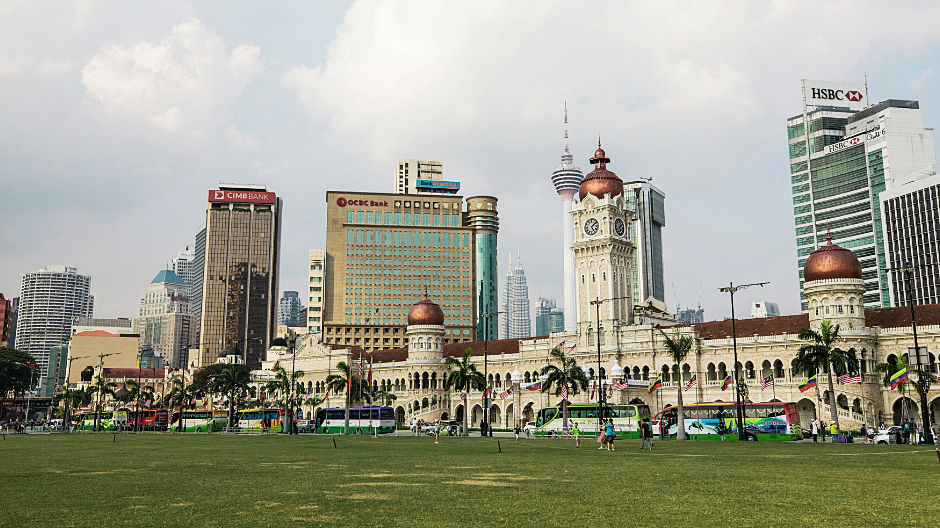
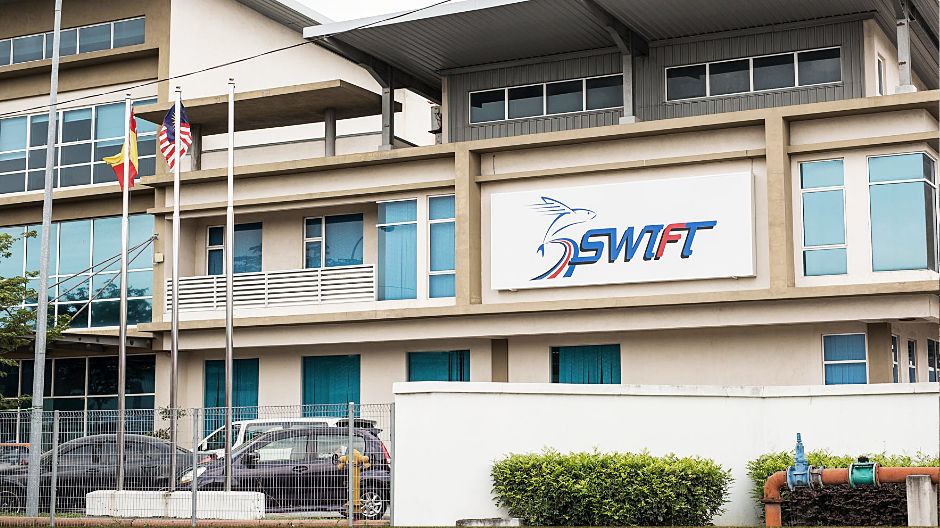
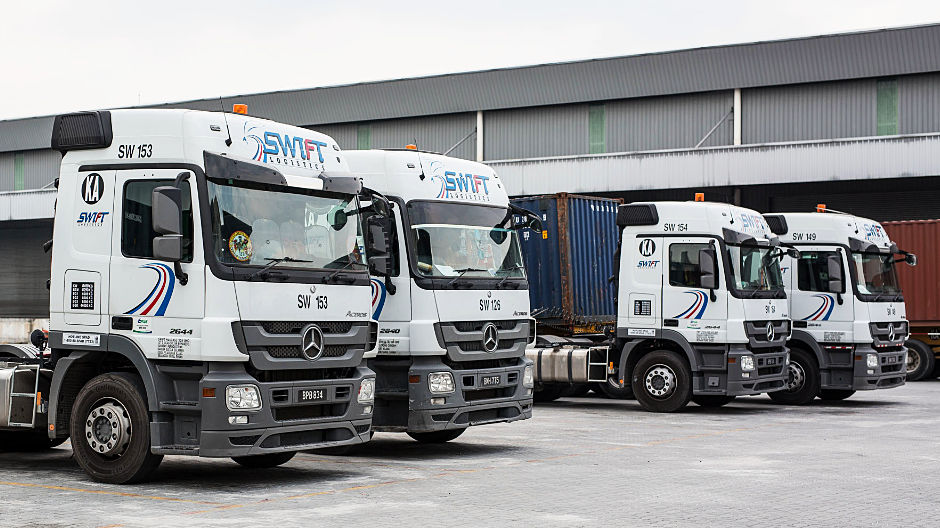

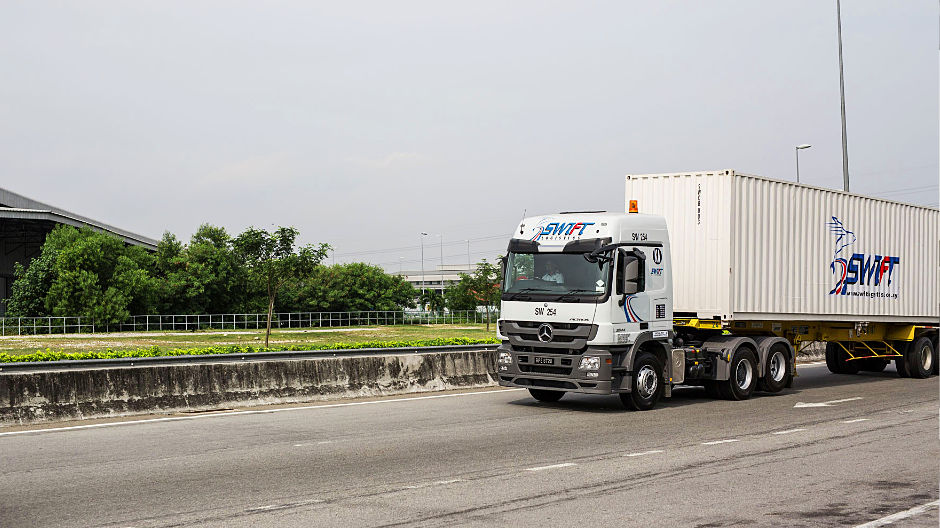
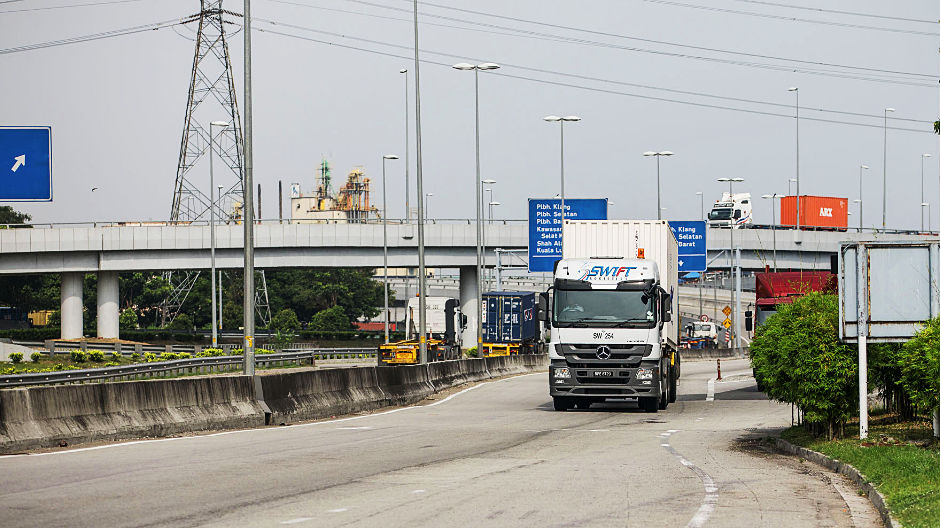
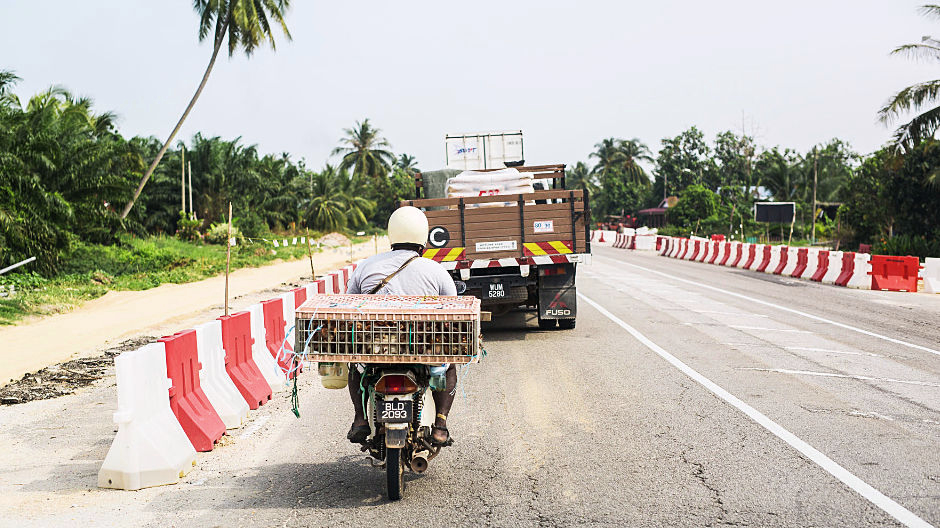
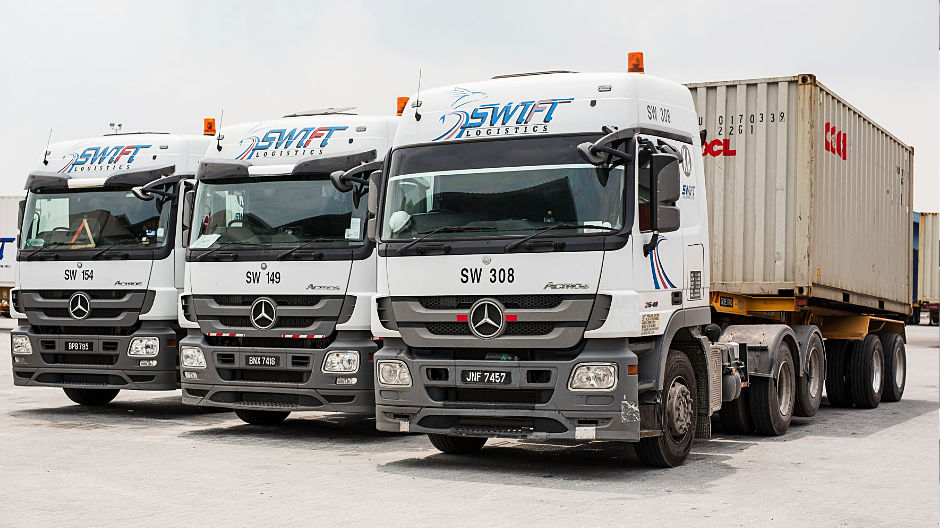
A man in his mid-30s strolling through the inner city of Kuala Lumpur will soon feel old. Not because of the oppressive, muggy heat with temperatures above 30 degrees, but because of people’s faces: Malaysia is a very young country. About a third of its roughly 31 million inhabitants are aged 15 years or below. The Southeast Asian country has successfully evolved from a commodities supplier into a diversified industry location. With prices on the global market having declined, revenues from the oil and gas business still make a significant contribution to Malaysia’s budget, but this business is no longer as dominant as it once was. Over 75 per cent of the population live in cities. Around one quarter of government spending goes to schools and universities. In addition, the government is investing heavily in the expansion and upgrading of roads, ports and rail networks. Successfully, it would seem: thanks to these investments, Malaysia’s economy is flourishing. Annual growth rates since 2011 have been up to six per cent. Which is good news for the logistics sector. And that pleases Loo Hooi Keat.
This article contains additional material (videos, images and reports etc.) for registered RoadStars members. In order to experience the article to the full, you need to log in with your RoadStars account or register for one free of charge.
Become a RoadStar and gain access to exclusive content and campaigns!
Login for RoadStars members
Not yet a member? Join RoadStars now
Obtain exclusive access to exciting events and activities which only RoadStars can offer.
Join RoadStarsThe 62-year-old entrepreneur, whose parents came to Malaysia from China about 65 years ago, is in charge of the Swift Group. “We are the fastest-growing logistics services provider in Malaysia,” says the experienced CEO and investor. Since 1996, he has also been heading up the long-established company Pelikan, which was originally founded in Hanover, Germany. “In addition to the classic forwarding business, the Swift Group is also active in cross-border projects and contract logistics as well as in warehouse management.”
“In Europe many companies are structured along rather institutional lines, whereas here in Malaysia start-ups and entrepreneurship are very strongly encouraged. This fuels our growth enormously.”
Loo Hooi Keat, CEO Swift Group, Port Klang, Malaysia
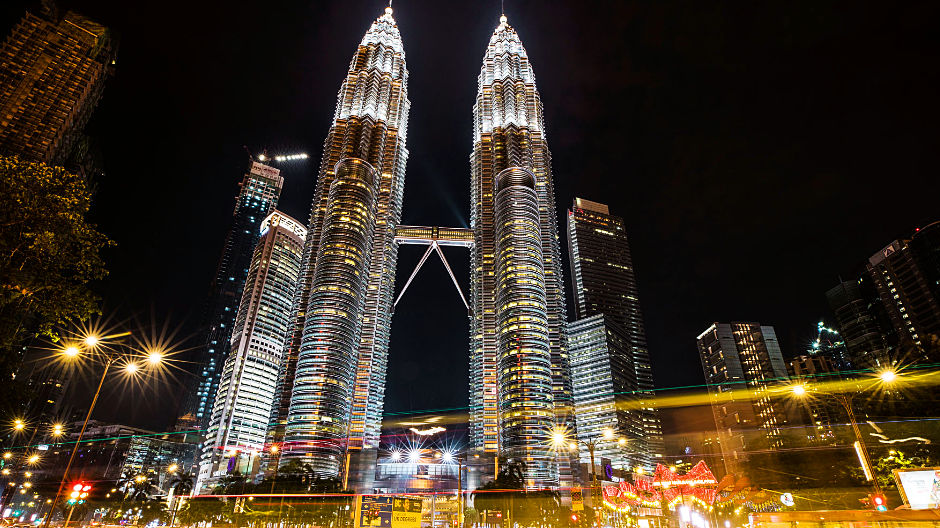
Mega city. Kuala Lumpur never sleeps. The cityscape is dotted with numerous infrastructure projects, like the extension and upgrade of the road network and public transport.
Number one in just four years.
In terms of tonnage moved, the company has been the biggest freight forwarder in Port Klang, Malaysia’s most important seaport, located about an hour’s drive west of the capital Kuala Lumpur on the Strait of Malacca. The corporate headquarters of Swift are also located nearby. Established in 2011, the Group has 2 000 employees today and operates a fleet of over 550 trucks – with 250 of these bearing the Mercedes star. In 2016 Swift transported around 278 000 TEU (twenty-foot equivalent unit).
The logistics experts work primarily for customers in Malaysia, Singapore and Thailand. “Our planning for the future includes major regional expansion, for example into Vietnam, Laos, Cambodia, Myanmar and China,” says Loo Hooi Keat. To round off its range of services, Swift will soon be adding specialised transport services, for example for the oil and gas industry.
“We are a multi-ethnic country, rich in diversity and full of contrasts,” explains Loo. “The Malaysian culture is very different from European culture – not only in terms of food, but especially when taking a closer look at business leaders. In Europe many companies are structured along rather institutional lines, whereas here in Malaysia start-ups and entrepreneurship are very strongly encouraged. This fuels our growth enormously.” Malaysia offers an attractive business environment, legal certainty and a well-trained workforce – even though, with an unemployment rate of around three per cent, workers have lately become somewhat scarce in many areas. Further locational advantages are good English skills among large segments of the population, and the well-developed infrastructure.
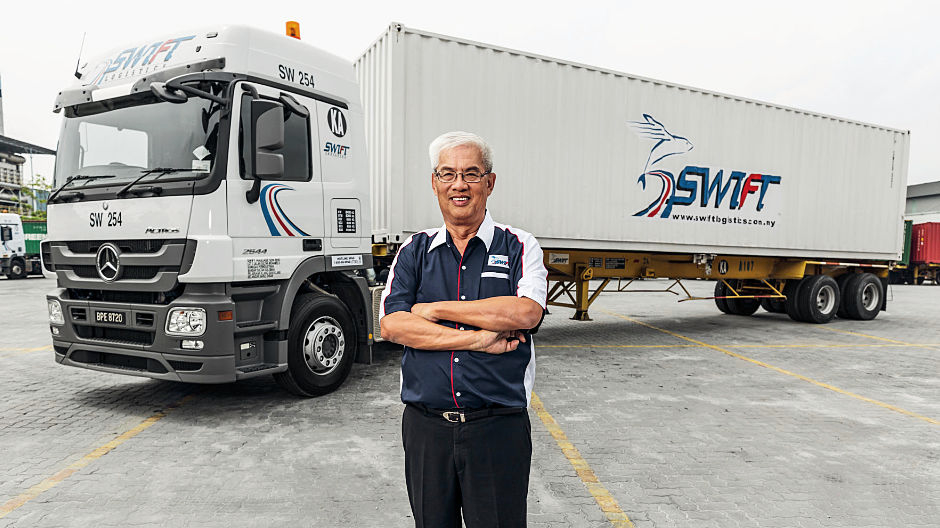
Experienced businessman. Loo Hooi Keat not only heads the Swift Group. Since 1996 he has also been guiding the fortunes of the traditional writing utensils brand, Pelikan.
Successful conversion of the economy.
One of the outcomes of the conversion of Malaysia’s economy has been the establishment of a relatively strong middle class. After Singapore and Brunei, the country has attained the highest level of prosperity and development in the Southeast Asian region. Today only twelve per cent of employment is accounted for by the agriculture and forestry sector. Malaysia’s industry chiefly produces electronic goods like microchips and solar cells. The biggest proportion of employment with around 60 per cent is now engaged in the services sector. In 2014, more than 80 percent of net employment growth was achieved in this sector.
“In our business, conditions are changing rapidly – especially when it comes to technological progress, which means that we must always keep our eye on the ball,” says Loo Hooi Keat. “In the past you could operate a truck for 10 or 20 years and still be successful. Of course you also had to spend a lot of money on maintenance and repairs. Frequent oil changes and brakes wearing out quickly were the order of the day. With modern vehicles and their economical service intervals, we are saving cash. Even so we still replace the vehicles every four to five years. This is primarily due to the increased requirements on the part of our customers, but additional factors are the constantly changing legal conditions, for example in relation to exhaust emissions.”
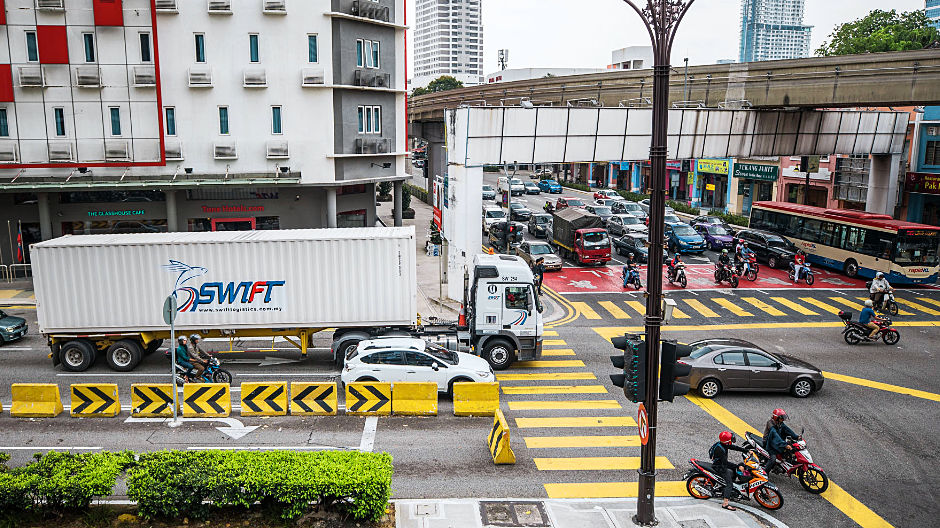
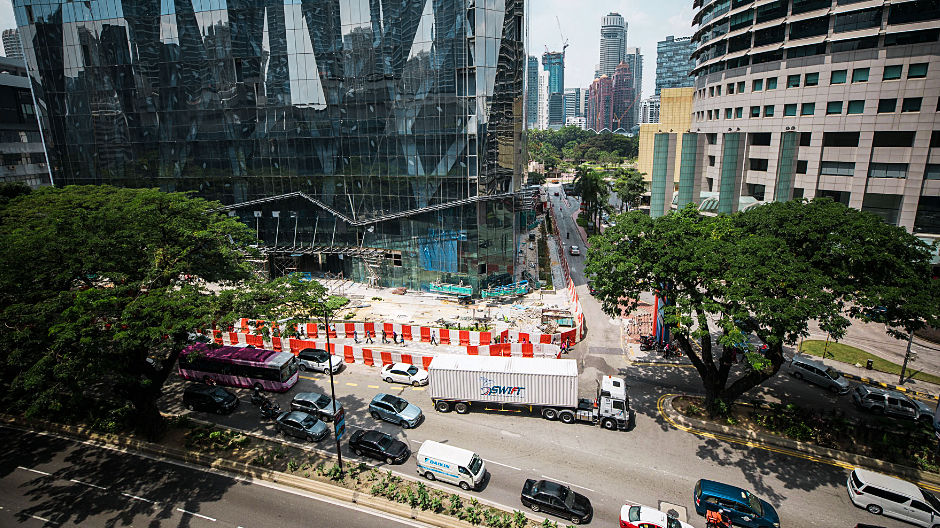
Shaping the change.
The bulk of the current total of 250 Mercedes-Benz trucks in Swift’s fleet are prime movers: the tried-and-tested Actros 2644. They make up the biggest fleet of Mercedes-Benz trucks in the whole of Malaysia. A further 32 units are about to be delivered. “Change never comes easy,” says Loo Hooi Keat. “But if you work with the right partner, it is not something we need to fear. Mercedes-Benz Trucks is very well positioned here in our region. The trucks are characterised by quality and reliability. If we do encounter a problem once in a while, the technicians turn up in no time and take care of it. It is this close cooperation, the proactive manner in which I, as the customer, am asked for my input in the improvement and further development of the trucks, that I consider quite unique.”
Click here to leave RoadStars and to find out more information within Google Maps: Map on Google Maps
Fotos & Video: Alexander Tempel




Comment
Please log in to post a comment.
No comments yet